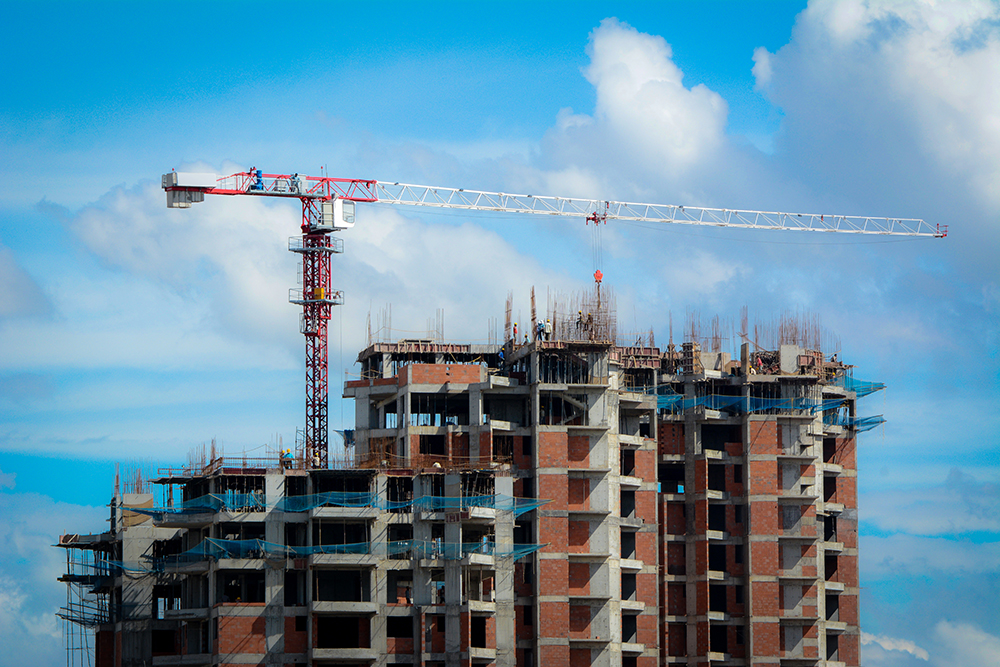Property Project Delays
What happens when a major construction project, made up of dozens upon dozens, if not hundreds of underlying interlocking contracts between contractors, suppliers, engineers and architects reaches a point where just one of those contracts is subject to dispute? A supplier isn’t paid or an architect won’t sign off a stage payment.
All too often the answer has been that the whole project grinds to a halt; and it’s been a major bone of contention in the construction sector for years.
Not anymore.
In a positive step aimed at boosting further growth in the construction sector the Indian Cabinet Committee on Economic Affairs (CCEE) has approved a number of measures proposed by the Niti Aayog; all of them designed to stop underlying disputes and quibbles on contractual terms from holding up completion of the much bigger construction project of which they all form part.
The package includes measures for faster settlement of disputes between contractors and government departments; the introduction of a clever provision for the deposit of a security fund in escrow (similar to an adjudication process) which will allow disputes to be settled on an interim basis with final resolution awaiting the completion of the project (so as not to delay the completion itself) and a new secured system of appeals from arbitral award where the appellant is a government department.
It is a mechanism closely modelled on procedures which have been deployed in other jurisdictions (notably the English Law ICT Contract) where experience has shown it to yield real, indeed striking results in speeding up the construction process. In the specific circumstances of the new Indian Model it should also lead to fewer funds being locked up in arbitration which have made it particularly difficult in the past for construction companies to keep up with interest payments on borrowed funds.
The fact procedures and systems of this kind are now being introduced into the Indian Construction Sector is very much to be welcomed. It can be expected to lead to still more construction activity; driven by the assurance that a whole raft of technical blocks and red tape have been removed from the process. Those involved in the Construction Sector can now expect a lot more time on Site, and not in a Court or an Arbitrator’s Office. Lawyers might not be happy with that but no doubt they’ll be able to find other things to do.
Commenting on the new regulations, Finance Minister Arun Jaitley said that he expected them to:
“……..pump a lot of liquidity into the sector, activate real estate and infrastructure projects which have been stranded for some time and support the whole process for dispute resolution in relation to construction and real estate.”
And the Reserve Bank of India agrees:
“Given the significant multiplier effect the construction sector has on the economy, these measures are expected to give a major boost to economic growth.”
They are both likely to be right, if only on the basis of the experience in other jurisdictions as referred to above.
Red Ribbon CEO, Suchit Pannose thinks:
“Anyone investing in property will be familiar with the horror stories which abound of perfectly good and promising plans for development being bogged down and often killed off by litigation and contractual disputes sparking off at an interim stage of the development. So I welcome these new provisions from the Indian Government.
They have the twin virtues of seeking to speed up the whole construction process which can only be a good thing and freeing up funding, too often locked up in lawyers’ bank accounts whilst disputes rumble on, seemingly endlessly.
And of course we are living on a crowded planet; serious shortages of housing stock on the subcontinent are a matter of persistent and justified public concern. Anything which smooths out the process of releasing further stock has to be a good thing.
It should all add to the existing spectrum of investment opportunities.”
We can expect further growth in the Indian Construction and Property Sectors to follow.








Leave a Reply